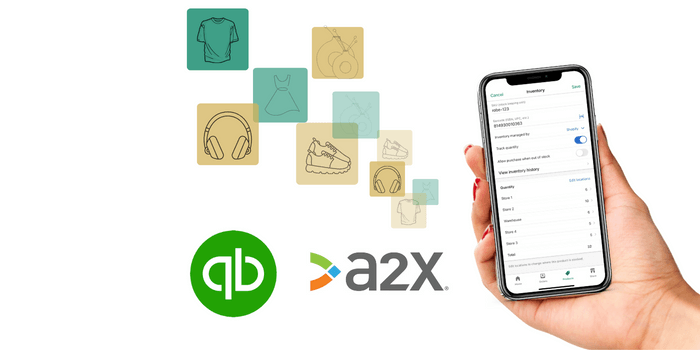Ecommerce Bookkeeping Master Guide
Financial Solutions
October 5, 2022
Bookkeeping

If you want to grow a profitable ecommerce store, one of the first things you need to get in sync are your numbers, found in a set of financial statements derived from your bookkeeping.
As Shopify specialists in accounting, bookkeeping & tax services we’ve taken some key insights and put them into this guide for you. This blog aims to help you understand ecommerce bookkeeping and why it’s so important for your business. Let’s get into it!
Bookkeeping will make or break an online seller. Do it right, and you’ll have predictability and the financial information you need to make great business decisions. Do it wrong, and you’ll be stressed out and run into one (or all) of these problems.
- Shortage of cash when you need it most
- Inability to predict cash flow movements
- Ordering too much inventory
- Holding too much slow moving stock
- Not knowing what products are driving profitability
- Incorrect profit figures
-
Incorrect income tax figures
(which will put you in trouble with the IRS and may trigger an audit!) -
Incorrect state sales tax calculations
(which puts you in hot water with sales tax collection agencies) - Not having the financial data you need to make good business decisions
- Financial stress!
In this master guide to ecommerce bookkeeping we look at the key components you should have in place for your online store.
- What is bookkeeping?
- Why is bookkeeping important?
- Ecommerce inventory management
- How to manage cash flow
- Ecommerce payment processors
- Ecommerce and tax
- How to do ecommerce bookkeeping
- When do you need an ecommerce bookkeeper?
- How much does ecommerce bookkeeping cost?
- Bookkeeping, Taxes, Financial Planning, and Investment Management – how they all go together.
1. What is ecommerce bookkeeping?
Bookkeeping is the recording of all financial transactions and movements of cash that take place in your business. In your ecommerce business this includes things like recording payments to suppliers for inventory, online sales in your Shopify store, discounts, returns, recording inventory levels, and other incomes and payments (such as business expenses, employees etc).

What’s the difference between accounting and bookkeeping?
If you think of it in a Shopify (or online store) context, bookkeeping is like uploading all your products, pricing, images and product descriptions. Accounting is looking at your Shopify dashboard and analytics and interpreting the data to understand what happened to those products over a period of time.
Where bookkeeping records all your business transactions, accounting uses those records to produce your profit and loss statement, balance sheet and other financial statements that tell you how your ecommerce business is performing.
2. Why is bookkeeping important for my ecommerce store?
Good financial records = better business decisions = increased profitability
With accurate, up-to-date bookkeeping you’ll have the information you need to make important decisions and to understand the current financial state of your business.
Good bookkeeping also helps you manage your cash flow and avoid trouble with the tax agencies, such as the IRS, the state income tax departments and the state sales tax departments.
What are the benefits of bookkeeping?
There are very clear benefits for a business that takes good care of its bookkeeping:
- More accurate financial records
- A clear operating procedure (preferably automated) to deal with complex transactions such as returns and discounts
- Ability to forecast and plan business growth
- Ability to plan for upcoming payments
- Ability to manage inventory more efficiently
- Accurate tax returns and state tax calculations
- With accurate financial records you have a better chance of acquiring financing / loans
- Avoid fines and tax complications
- Sleep better at night knowing how your business is performing
- Good bookkeeping is crucial if you want to sell your business one day

3. How to get your ecommerce inventory management right
One of the main benefits of ecommerce bookkeeping is being able to accurately manage your inventory levels.
With real-time financial information you can see how much inventory you have on hand so that you can make informed decisions.
You can glean insights into sales cycles, inventory turnover periods, which product lines are hurting your business, which are driving profits, how much working capital you have available for new stock and whether you can afford to take a risk on a new product line. You can also make better decisions when it comes to ordering, when to order (especially before peak cycles) and from which suppliers.
Managing ecommerce inventory is not easy if you’re not a trained bookkeeper. Accounting software like Quickbooks weren’t originally built for online ecommerce platforms like Shopify and Amazon. Henc, they are not designed to accurately manage inventory and the large volume of transactions and product data.
Using an app doesn’t solve the problem either as you still need to understand a set of ecommerce chart of accounts and how to map transactions from Shopify into Quickbooks, for example. And when something goes wrong, you’ll need an in depth understanding of bookkeeping to figure it all out.
To grow a successful ecommerce business it’s worth investing in an ecommerce bookkeeper, like Financial Solutions – a company that specializes in Shopify bookkeeping. A specialist can save you money and time and more importantly, give you the control and data you need to run your online business.

4. In e-commerce cash flow is your lifeblood
Without cash, your ecommerce business will struggle
Just because you have cash in the bank doesn’t mean that your store is profitable.
Conversely, showing a profit on your P&L at the end of the month doesn’t guarantee that you have cash available either.
Cash flow can be hard to comprehend and manage in any business but it’s critical that in an ecommerce business you come to understand this – or at least your bookkeeper does.
Without cash available to pay suppliers, staff, taxes and other bills, your business and reputation will suffer.
In an ecommerce business there can be significant delays between the time that you outlay cash (like paying a supplier for inventory), and the day it actually gets sold and you receive compensation.
If you’re ordering from an overseas supplier, this time delay is even greater. Without a clear system in place to manage cash flow you can’t predict and manage your future financial obligations and are likely to run out of cash when you need it most.
Three important cash flow calculations that you can use to ascertain the optimal cash levels your business needs at all times:
Free Cash Flow = Net income + Depreciation/Amortization – Change in Working Capital – Capital Expenditure
Operating Cash Flow = Operating Income + Depreciation – Taxes + Change in Working Capital
Cash Flow Forecast = Beginning Cash + Projected Inflows – Projected Outflows = Ending Cash

5. Payment gateways & bookkeeping
How do payment gateways work and how do they affect your ecommerce store’s bookkeeping?
Selling online means that you have a variety of methods to collect payments for the sale of your goods which is excellent for your ecommerce business. However,t each of these payment methods comes with its own terms and conditions, including subscription costs and transaction fees.
Good bookkeeping can help you account for those costs so that you can start to understand just how much your sales are costing you in transaction fees.
If you’re selling an item with a very low profit margin, you need to know all the costs associated in making that sale (like transaction fees) as you may actually be making less profit on that item than you had initially thought.
These fees are also a tax deductible expense. If you’re not recording them accurately, then when you file your business taxes, you will inaccurately report your expenses and you could end up paying too much in taxes.
Good bookkeeping helps you better understand your bank account. When using an online payment processor, there’s a delay between the time you sell the item and the time the money is deposited into your account. With growing sales, multiple transactions, refunds and other movements taking place in your account it can become difficult to understand your current cash position.
At Financial Solutions we make use of clearing accounts to manage the timing difference between sales, deposits, fees and account usage across multiple payment processors.

6. Calculating sales and income tax
Incorrect bookkeeping = Incorrect figures = Incorrect tax calculations
When your bookkeeping isn’t being managed accurately you’re going to face two main tax issues:
- Incorrect sales tax calculations
- Incorrect income tax calculations
This can happen when the integration between your online sales platform (like Shopify) and your accounting software (like Quickbooks) isn’t correctly mapped.
Errors can occur when items are sold at discount, returned, you have damaged or lost inventory, you receive a discount from suppliers, or for many other reasons.
You also need an accurate closing balance for your inventory at the end of the accounting period in order to accurately calculate your income and subsequent tax.
Ecommerce sales tax
One major area that poses significant challenges to online sellers is in calculating sales tax when selling across multiple states. Your bookkeeper must know where you have an economic and a physical nexus in order to know when to start collecting sales tax on your ecommerce sales.
Financial Solutions can help you navigate the complexity of tax in an online sales environment. Contact us to discuss your needs.

7. How to do ecommerce bookkeeping in 15 minutes
Bookkeeping for any business, not just ecommerce, requires some financial ability. Here’s a simplified plan to help get you started with bookkeeping for your online store.
We recommend that you set time aside each day in your business (either at the start or end of that day) and diligently to go through these steps. Just spending 15 minutes each day should be enough, depending on your volume of transactions.
Step 1: Inventory management.
Decide what accounting method you’re going to use to cost the inventory that you purchase (FIFO, LIFO, weighted average or retail method) and then measure your inventory movements.
Step 2: Software
Use an appropriate cloud-based accounting software to save you time and make it easier to manage your records. Utilizing a cloud-based accounting software will be very important so that you can manage your business from any location and at any time.
Step 3: Records
Use a template sheet to record the transactions that take place in your business, like sales, returns, discounts, purchases, business expenses and other receipts and payments.
Step 4: Statements
Use those records to create your ecommerce store’s P&L, balance sheet and cash flow statement once the month has ended.
Ecommerce accounting software
You can make your life easier by integrating your ecommerce platform, such as Shopify, with your accounting software.
There are many apps that make this integration easier, such as A2X Accounting but you will probably need the help of an experienced ecommerce bookkeeper to map your chart of accounts accurately. The rationale for using softwares like A2X is because A2x acts like an aggregator of transactions and posts one journal entry with the sales total from the ecommerce platform like Shopify.
If an app like A2x is not used, and transactions are directly posted form Shopify, we could have a data dump, depending on the volume of transactions, which can total in the hundreds and thousands per month, causing a reconciliation nightmare.
This is why you need an experienced bookkeeper to assist with app integration and maintenance.

8. When do I need an ecommerce bookkeeper?
Anyone who wants to grow a successful and profitable business needs a bookkeeper, and a Shopify or ecommerce business is no different.The sooner the better for financial peace of mind.
It’s definitely time to enquire about bookkeeping services for your ecommerce store if you don’t know how your online business is actually performing. This can appear to be a monumental task since your business will have the following concerns: incorrect sales figures, not knowing your profitability, being behind on tax, incorrect tax calculations, not knowing what your inventory levels are, what inventory is most profitable and so on.
What are the benefits of outsourcing bookkeeping?
Outsourcing your bookkeeping will benefit you financially and emotionally as a business owner. Although it will cost you money to hire a bookkeeper, you’ll see a return on that investment as they free up your time, allowing you to get on with running your business, generating sales and driving growth.
The right bookkeeper will also provide you with reliable financial information about your store and help you avoid errors and tax penalties.
Bookkeeping for an ecommerce store can get messy quickly, especially when things go wrong or transactions get complicated. It’s best to outsource your bookkeeping to an industry specialist like Financial Solutions.

9. How much does an ecommerce bookkeeper cost?
If you were to hire a full time bookkeeper you could pay $75,000 per annum or more. The hourly rate for a bookkeeper ranges between $35/hr – $125/hr but remember, not all bookkeepers are equal. You get the quality and the results that you pay for it. The cost of the bookkeeping service is a tax deductible event.
A bookkeeper that delivers real value to you should be performing the following tasks:
- Keeping accurate and up-to-date financial records
- Categorizing your transactions correctly
- Taking care of your state and federal tax obligations
- Providing you with accurate and timely financial reports
- Providing you with insights into your figures to help you make better, informed decisions
- Unlimited business advice
At Financial Solutions we offer our Shopify business clients all of the above services and more in a choice of 3 packages to match their size, volume of transactions, and desired growth.

10. Bookkeeping, Tax, Financial Planning and Investment Management
Bookkeeping will help a business make sound business decisions and produce an accurate set of financial statements. These financial Statements will help us prepare tax returns and assist with tax planning so as to legally minimize your tax liabilities.
Once you’re making a profit in your business we need to put together a financial plan to help create a road map as to your financial and life goals.
The fundamental questions we all need to be asking ourselves are what do you want out of this life and how are you going to get there?
This is what a good financial plan will do, create a roadmap with milestones so you can see your progress along the way.
Of course a good financial plan needs money. This is where we bring in Investment Management. And put together a portfolio of investments so that we can maximize our return on our hard earned money, respecting and honoring your risk thresholds.
Financial Solutions is a one stop shop, where we have experts in bookkeeping, taxes, financial planning and investment management.
If you would like to bounce any ideas off our professional team, please get in touch.
Take Your Bookkeeping (And Store) To The Next Level!
Recent Posts
Achieving Financial Independence and Early Retirement: A Comprehensive Guide
Understanding GE Sales Tax in Hawaii: A Comprehensive Guide
May 22, 2024
Financial Survival Guide: Strategies for Profitability, Burn Rate Management, and Long-Term Business Success
December 23, 2023
Have Any Question?
Amazing Financial Solutions
Lihue, Hawaii, 96766v
